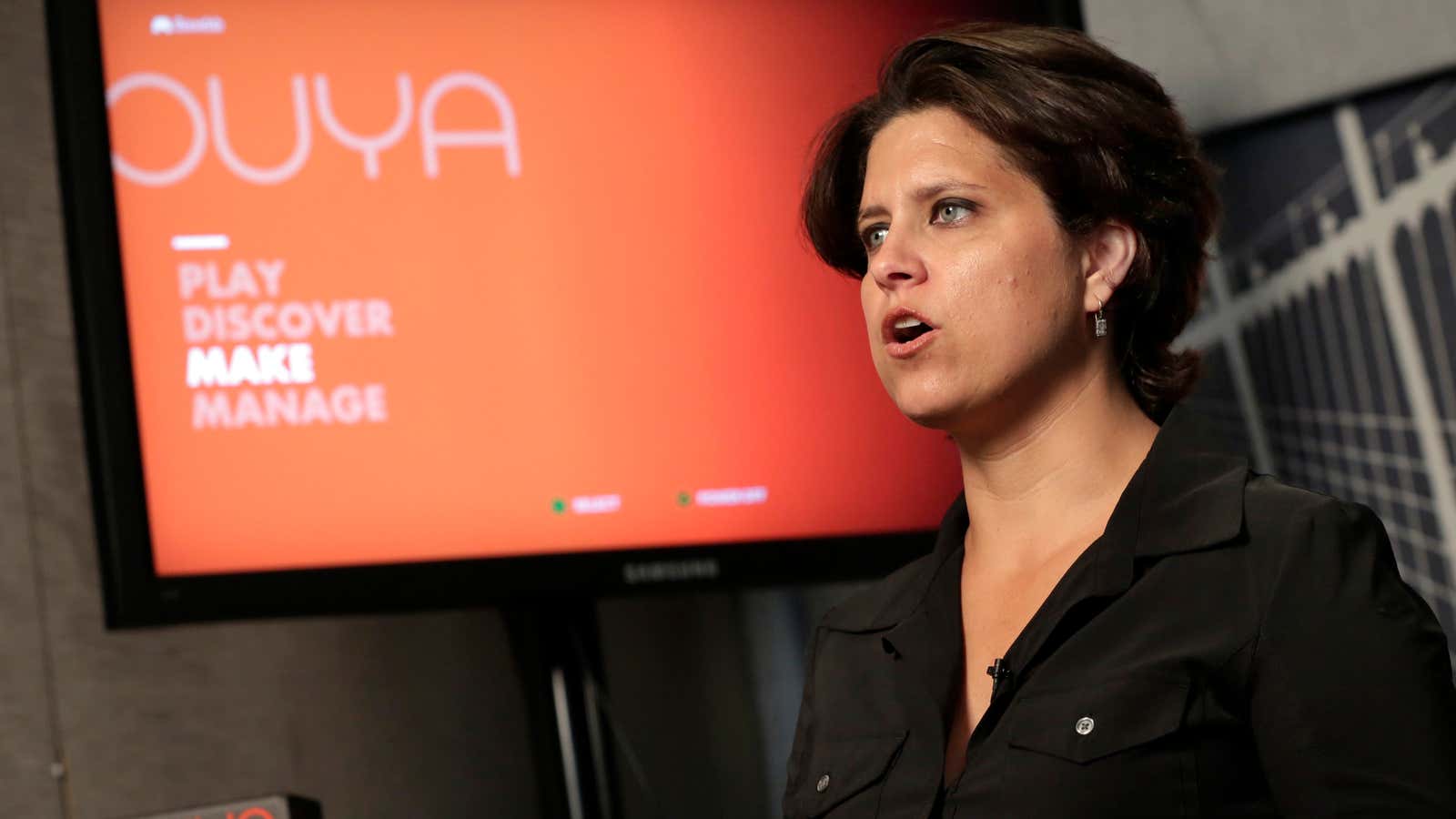For hardware startups like Pebble (maker of the Pebble smart watch) and Ouya (which makes the Ouya gaming console), Kickstarter has been the holy grail of funding mechanisms. It provides a way for fledgling companies to rack up millions of dollars in seed funding without giving up an iota of ownership.
Tech startups that fund their projects in other ways, say, through venture capital or seed investors, typically have to give up a slice of equity and some control in exchange for funding. But on Kickstarter, the funding comes in exchange for what basically amounts to a review copy of the product for the customer, with fewer strings attached. For example, a recent piece by tech reporter Nick Statt notes that some people who backed Pebble on Kickstarter still haven’t received their order of the Pebble smart watch. Instead, Pebble took their money, delayed on fulfilling their orders and in the meantime sold thousands of Pebble smart watches to a bigger, arguably more important customer: Best Buy. A similar fate befell Kickstarter funders of Ouya, whose gaming consoles arrived in retailers before the company had met its Kickstarter commitments.
In essence, these startups used money provided by early customers to fund their growth while ignoring customer satisfaction. And the problem extends beyond Kickstarter. Pebble delivered its products to Best Buy before delivering the smart watch Statt pre-ordered on the company’s website—a site made possible in large part by Kickstarter. Statt cancelled his order in retaliation.
Pebble and Ouya are the two most-funded projects in Kickstarter history, netting $10.26 million and $8.6 million, respectively, which puts them in the enviable position of setting the standard for other tech startups.
Kickstarter’s founders are adamant that their site is not an investment vehicle or a store, but rather a new kind of funding mechanism, something akin to arts patronage. This model makes sense for music, film and other projects that have fewer avenues of funding available, but if the behavior of other tech startups follows the example of Pebble and Ouya, in the future backers might shy away from them. That would leave them groveling on crowd-investment sites like AngelList, FundersClub and Fundable, where funding is less democratic and, as a result, much harder to come by.




